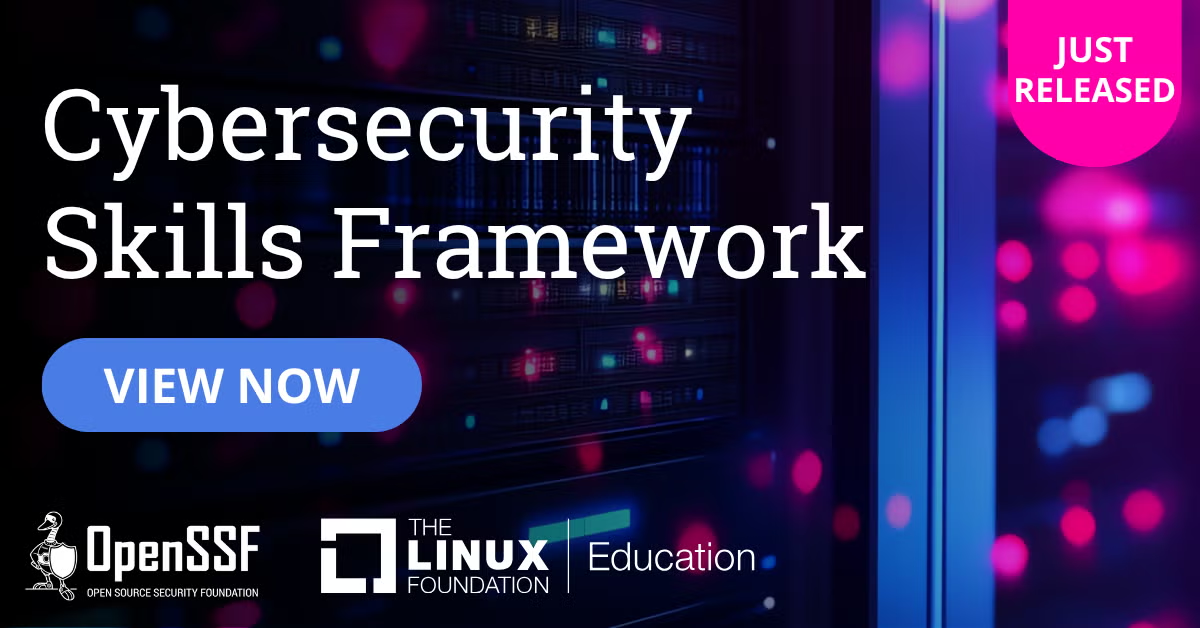Linux Foundation
If you’ve ever dipped your toes into the world of open-source software, chances are you’ve heard of the Linux Foundation. It’s a name that carries weight in the tech community, synonymous with Linux, open-source collaboration, and cutting-edge innovation. But what exactly does the Linux Foundation do, and is it worth the hype? As someone who’s spent years crafting compelling narratives, I’ve scoured the web, analyzed reviews, and dug deep to bring you an insightful, conversational review of the Linux Foundation—its mission, offerings, strengths, and areas where it could improve. Let’s dive in!
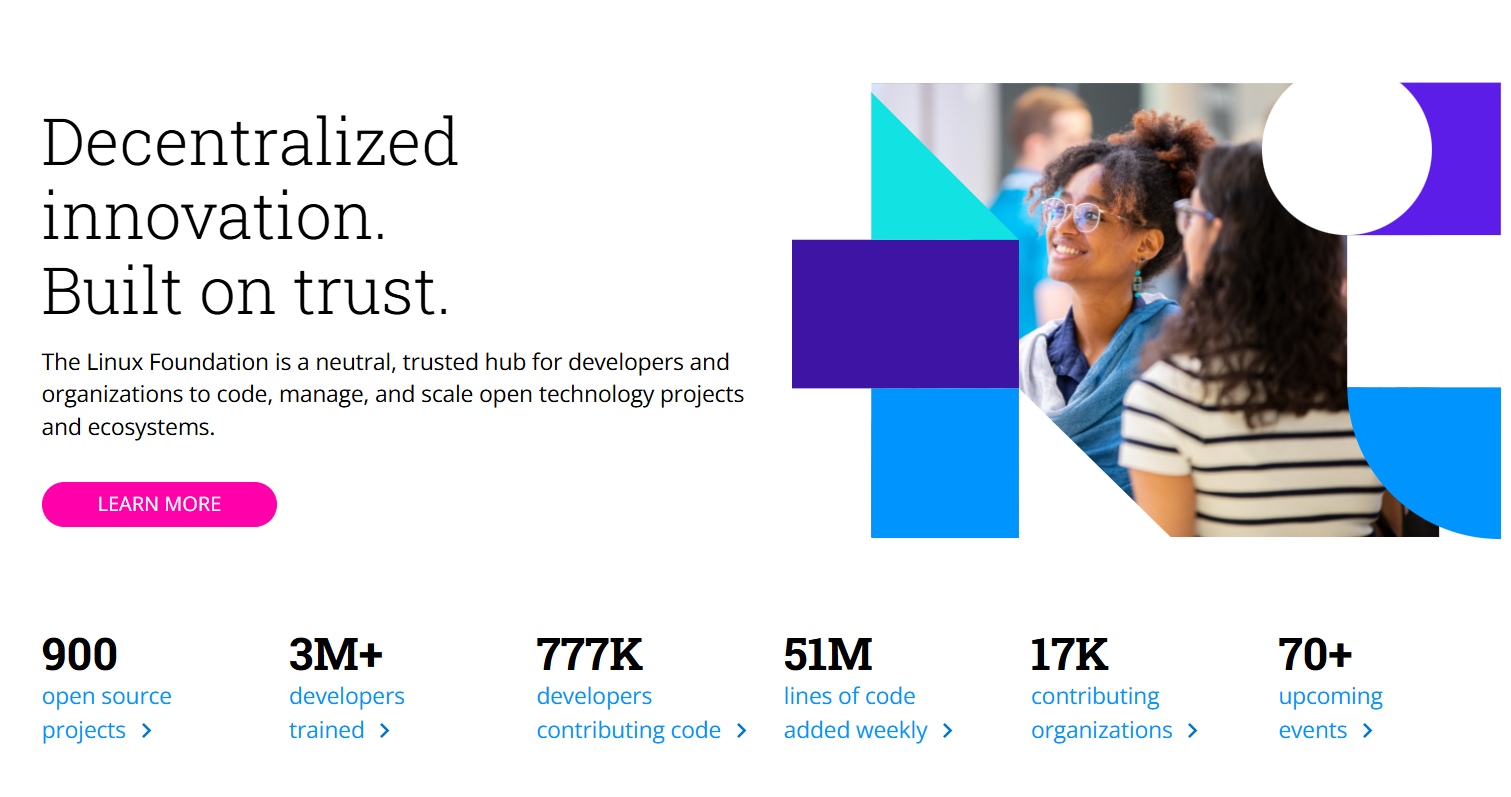
What is the Linux Foundation?
Founded in 2000 as the Open Source Development Labs (and later merging with the Free Standards Group in 2007), the Linux Foundation is a non-profit organization dedicated to fostering the growth of Linux and open-source software. It’s not just about Linux kernels, though—it’s a “foundation of foundations” that supports a vast ecosystem of projects across cloud computing, networking, blockchain, AI, and even hardware. Think of it as a neutral hub where developers, companies, and communities collaborate to build world-class open-source solutions.
The Linux Foundation’s mission is clear: promote, protect, and standardize Linux and open-source software. It does this through hosting collaborative projects, providing training and certifications, organizing global events like the Open Source Summit, and offering tools like LFX (Linux Foundation Exchange) to streamline project management. With over 1,700 member companies—including tech giants like Microsoft, Intel, and Google—and a revenue of $250 million in 2023, it’s a powerhouse in the open-source world.
But how does it perform in practice? Let’s break it down by exploring its key offerings: training and certifications, project hosting, community events, and workplace culture.
Training and Certifications: A Gateway to Open-Source Expertise
One of the Linux Foundation’s standout offerings is its training and certification programs, designed to equip individuals with the skills needed to thrive in Linux and open-source environments. From free introductory courses to advanced bootcamps, the Foundation caters to beginners and seasoned professionals alike. Here’s what I found:

The Good
- Comprehensive Course Catalog: The Linux Foundation offers a wide range of courses, from the free Introduction to Linux on edX to specialized programs like Kubernetes for Developers and DevOps Bootcamp. These courses cover everything from Linux system administration to cloud-native technologies, making them relevant for diverse career paths.
- Expert Instructors: Courses are often led by industry veterans, including contributions from Linux kernel creator Linus Torvalds himself. For example, the Introduction to Linux course, crafted by Training Program Director Jerry Cooperstein, has been praised for its clear structure and practical labs.
- Practical Labs and Flexibility: Many courses include hands-on labs, allowing students to apply concepts in real-world scenarios. The self-paced format is a big plus, letting learners progress at their own speed. Students on platforms like Reddit have noted that these labs are valuable for building practical skills, even if the theory can feel dense.
- Industry Recognition: Linux Foundation certifications, like the Certified Kubernetes Administrator (CKA) and Linux Foundation Certified System Administrator (LFCS), are respected in the industry, especially among enterprises that rely on open-source technologies. Over 2 million developers have trained with the Foundation, and its courses are backed by major tech companies.
- Cost-Effective Options: The free Introduction to Linux course is a fantastic entry point, and even paid courses (priced around $299) are often discounted. For example, the DevOps Bootcamp bundle, which includes five courses, has been offered for as low as $349 during promotions—a steal compared to retail prices.
The Not-So-Good
- Steep Learning Curve for Beginners: Some reviews, particularly on Trustpilot and Savvy Programmer, highlight that the training resources aren’t always beginner-friendly. Newcomers may struggle with the heavy reliance on theoretical content and limited practical exercises in certain courses. For instance, the LFS101 course has been criticized for being too text-heavy with minimal hands-on practice.
- Exam Environment Issues: A recurring complaint on Trustpilot involves the exam infrastructure. Users have reported technical glitches, such as laggy virtual environments, unstable browsers, and frozen sessions during exams like the CKA and CKS. These issues can be frustrating, especially given the $395 exam fee.
- Refund Policies: Some students have expressed dissatisfaction with the Foundation’s refund policies. One Trustpilot reviewer mentioned being denied a refund for an unused $395 exam credit, calling it “unethical.” This suggests a need for more flexible customer service in certain cases.
- Inconsistent Instructor Support: While many praise the expertise of instructors, others note that discussion forums (e.g., on Linux.com) aren’t always monitored by instructors, leaving students to rely on community support. This can be a drawback for those seeking direct guidance.
Verdict on Training
The Linux Foundation’s training programs are a solid choice for anyone looking to break into or advance in the open-source world. The courses are well-structured, backed by industry leaders, and offer practical value—especially for intermediate to advanced learners. However, beginners may need to supplement with external resources (like YouTube tutorials or Kubernetes documentation), and the exam experience needs polishing. If you’re committed and can snag a discount, the value is hard to beat.
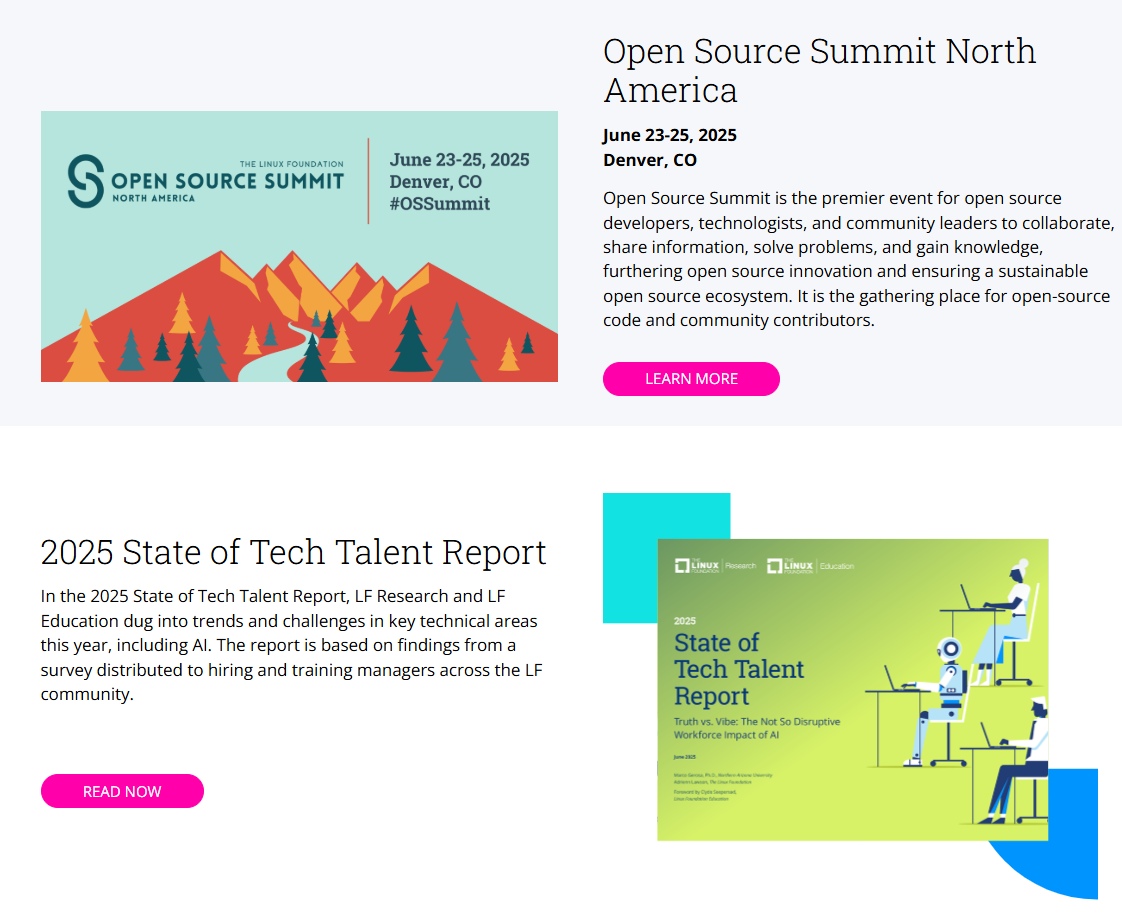
Project Hosting: The Backbone of Open-Source Collaboration
The Linux Foundation is often called a “neutral, trusted home” for open-source projects, and for good reason. It hosts over 850 projects, including heavyweights like Kubernetes, PyTorch, Hyperledger, and Let’s Encrypt. These projects drive innovation across industries, from healthcare to automotive to finance.
The Good
- Diverse Ecosystem: The Foundation supports projects spanning cloud (e.g., Kubernetes), security (e.g., OpenSSF), energy (e.g., LF Energy), and more. Case studies highlight real-world impact, like how PyTorch powers Disney’s content annotation or how LF Energy’s projects help European energy operators manage renewable energy.
- Robust Infrastructure: Tools like LFX provide standardized infrastructure for project maintainers, contributors, and managers. This includes security audits, licensing support, and analytics to track contributions, making it easier for communities to scale.
- Industry Backing: With 1,709 member companies in 2023, including tech giants and smaller firms, the Foundation has the financial and intellectual resources to sustain projects. Its Core Infrastructure Initiative (CII) funds critical security projects, with nearly $500,000 allocated in 2015 alone.
- Focus on Best Practices: Initiatives like OpenChain (for supply chain trust) and OpenSSF (for software security) provide standards and resources to ensure projects are secure and sustainable. Research reports, such as those on the EU’s Cyber Resilience Act, offer actionable insights for compliance.
The Not-So-Good
- Perception of Corporate Influence: Some critics, particularly on Reddit, argue that the Foundation’s heavy corporate backing (e.g., from Microsoft and Oracle) could steer priorities away from community-driven needs. A 2022 report noted that only 3.2% of its budget went to Linux-specific spending, raising questions about resource allocation.
- Complexity for Smaller Projects: While large projects like Kubernetes thrive, smaller or newer projects may struggle to gain visibility within the Foundation’s vast ecosystem. There’s little public feedback on how the Foundation supports these projects, which could be a blind spot.
Verdict on Project Hosting
The Linux Foundation is a powerhouse for open-source collaboration, offering unmatched resources and a trusted platform for projects that shape the tech landscape. Its ability to unite developers and corporations is a strength, but it must balance corporate influence with community needs to maintain trust. For project maintainers, the Foundation’s tools and support are top-notch, though smaller projects may need extra effort to stand out.
Community Events: Connecting the Open-Source World
The Linux Foundation is renowned for its events, such as the Open Source Summit and Linux Kernel Developers Summit, which bring together developers, businesses, and enthusiasts to collaborate and innovate. These gatherings are a cornerstone of its community-building efforts.
The Good
- Global Reach: Events like the Open Source Summit attract thousands of attendees worldwide, fostering collaboration and knowledge-sharing. They cover diverse topics, from AI to cloud security, making them relevant for various audiences.
- Networking Opportunities: Attendees praise the events for connecting developers with industry leaders. The 2025 Operations Management Summit is already generating buzz for its focus on open-source compliance and management.
- Educational Value: Sessions often include deep dives into emerging trends, like the 2024 World Open Innovation Conference’s focus on open data infrastructure. These discussions produce research reports that benefit the broader community.
The Not-So-Good
- Cost and Accessibility: Some community members note that event tickets and travel costs can be prohibitive, especially for independent developers or those in underserved regions. Scholarships exist (1,600 granted since 2010), but demand often outstrips supply.
- Corporate Focus: A few reviews suggest that events can feel corporate-heavy, with sessions sometimes prioritizing sponsor agendas over grassroots innovation. This perception aligns with broader concerns about corporate influence.
Verdict on Events
The Linux Foundation’s events are a must-attend for anyone serious about open-source networking and learning. They’re well-organized and impactful, but improving accessibility and balancing corporate and community voices could make them even more inclusive.
Workplace Culture: A Great Place to Work?
For those considering a career with the Linux Foundation, employee reviews on Glassdoor paint a positive picture, with a 4.7/5 rating based on 60+ reviews.
The Good
- Supportive Environment: Employees highlight a flexible, remote-friendly culture with a 4.5/5 work-life balance score. Benefits are generous, and the design team is often praised for its collaborative spirit.
- Meaningful Work: Working on open-source projects that impact millions is a major draw. Employees feel proud to contribute to initiatives like Let’s Encrypt or LF Energy.
- Strong Culture: With a 4.8/5 rating for culture and values, the Foundation fosters a supportive, inclusive environment where questions are encouraged, and growth is prioritized.
The Not-So-Good
- Salary Concerns: Some employees report that starting salaries are low for the workload, with one reviewer noting it was “impossible to live off.” This is a common critique in non-profits but worth noting.
- Scaling Challenges: Rapid growth has led to silos and “twisty politics” in some teams, with career advancement opportunities rated at 4.1/5. A few reviews mention toxic dynamics in specific circles, though this isn’t widespread.
Verdict on Workplace Culture
The Linux Foundation is a fantastic place to work for those passionate about open source, offering flexibility and meaningful projects. However, it needs to address salary competitiveness and internal silos to maintain its stellar reputation as it scales.
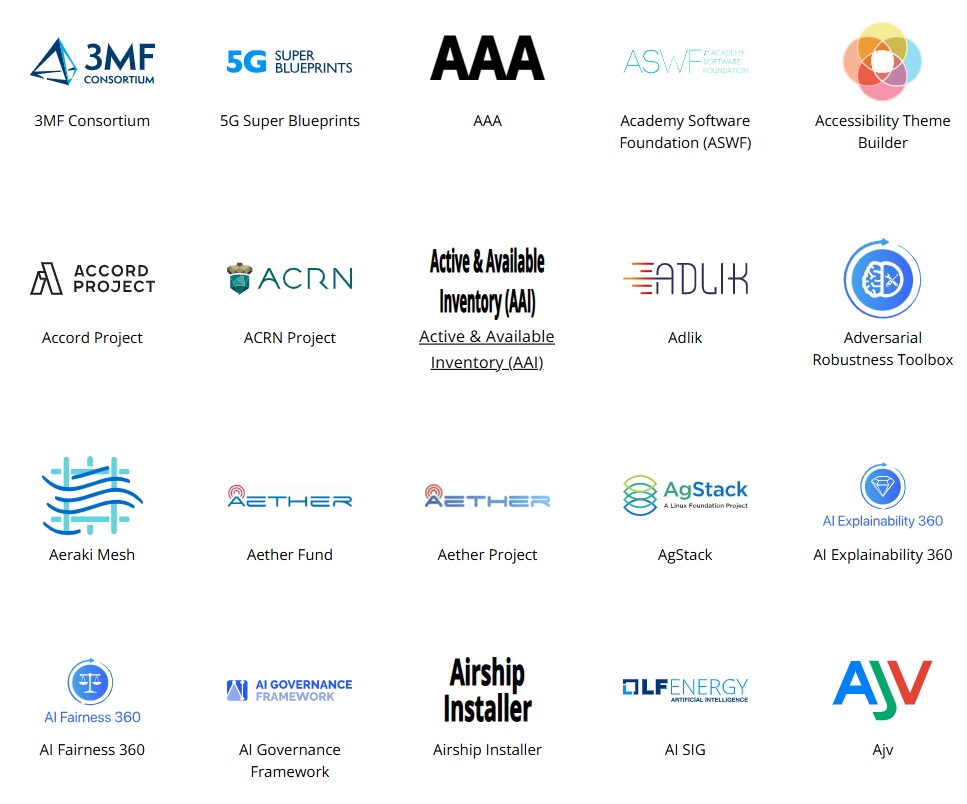
Final Thoughts: Is the Linux Foundation Worth It?
After diving into reviews, research, and community feedback, it’s clear that the Linux Foundation is a cornerstone of the open-source ecosystem. Its training programs are robust, though they require persistence for beginners and a smoother exam experience. Its project hosting is unparalleled, driving innovation across industries, but it must guard against corporate overreach. Its events are world-class, yet accessibility remains a challenge. And as an employer, it’s a dream for open-source enthusiasts, provided salaries catch up.
For students, developers, or companies looking to engage with open source, the Linux Foundation is a worthy investment. Its impact—evidenced by 98% of supercomputers running Linux and $5 billion in collaborative project value—speaks for itself. Just be prepared to supplement learning with external resources, advocate for community priorities, and seize discount opportunities.
So, whether you’re a newbie exploring Linux or a seasoned pro eyeing a Kubernetes certification, the Linux Foundation has something for you. It’s not perfect, but it’s a trusted partner in the open-source journey. Ready to dive in? Check out their courses at linuxfoundation.org or explore their projects to see where you can contribute.
this site is not affiliated with any of brand mentioned. We may earn a commission.
How does your tech talent
strategy stack up against
the competition?
Get insights on cross skilling, upskilling, retention and more!
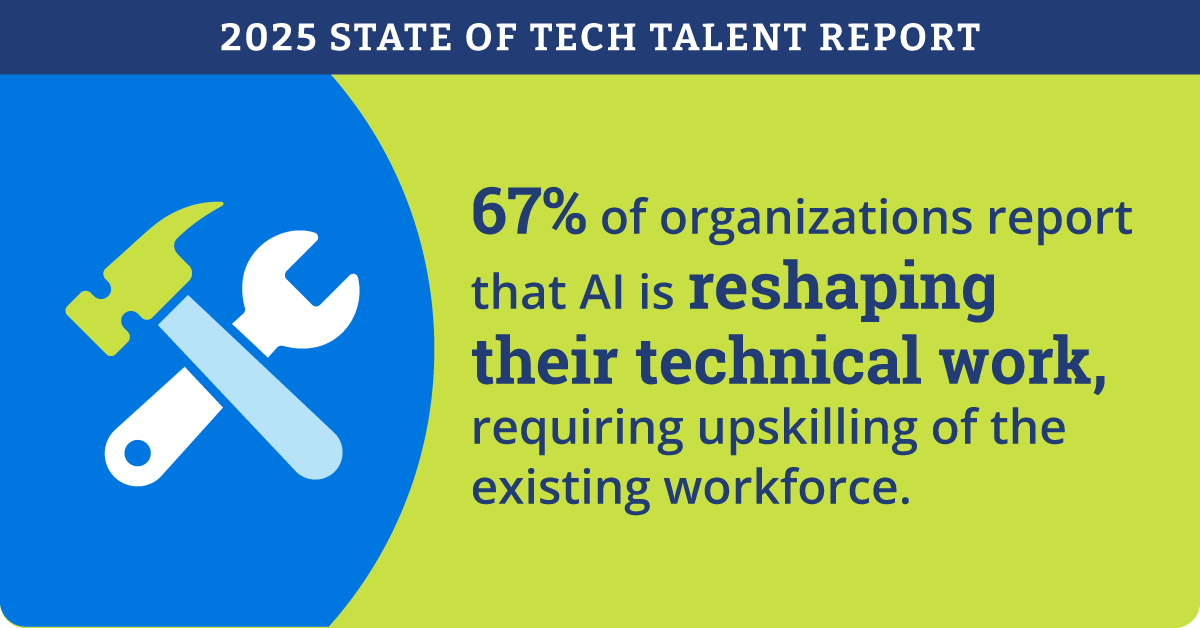
Align IT job roles with practical cybersecurity skills
A smarter starting point for cybersecurity readiness.
Live instructor learning is the gold standard
From Linux and Kubernetes to Cybersecurity, PyTorch, Rust, and more, we offer the expert-led courses you need.

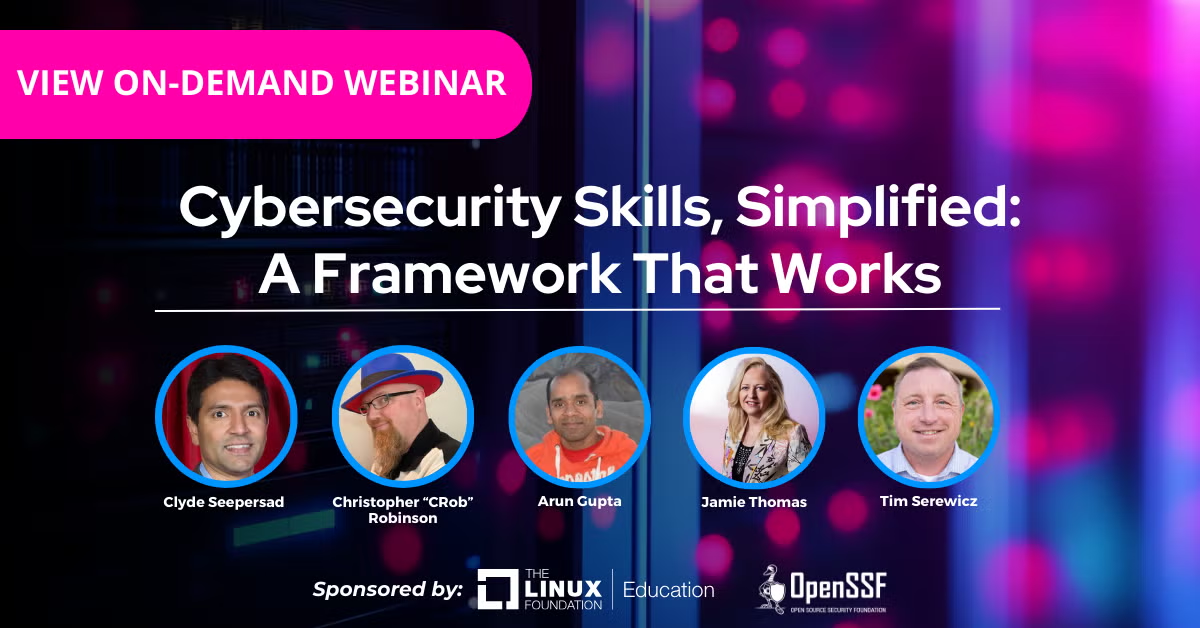
Want to align your
cybersecurity training with the world’s leading tech brands?
Find out how you can easily align your cybersecurity skills development program to global best practices in our latest webinar.
THRIVE with unlimited access to e-Learning courses
PLUS gain access to All SkillCreds with Annual Subscription!


Be sure you're following the right certification path
Map your IT career certifications with the help of our certification journey.
Grow your career with certifications
Respected, verifiable certifications from a vendor-neutral entity like The Linux Foundation demonstrate the depth of your skills to potential employers, most of whom report they are more likely to hire someone holding such a certification.


Gain marketable open
source skills
93% of hiring managers are unable to find enough individuals with open source skills. Take advantage by gaining these in demand skills and set yourself up for a successful long term career.
Cloud & Containers
Cloud and container skills are the most sought after by open source hiring managers.

Linux Kernel Development
Linux runs 99% of supercomputers, 82% of smartphones and 90% of public cloud workloads.
System Administration
System administration is the ideal starting point for a career in IT.

Discover the path to a brighter future
Whether you’re just starting out and aren’t sure where to begin, or if you’re an experienced pro looking to add a new skill, we offer a path to help.
“Since receiving my CKA and CKAD certifications, I feel that I have jump started my career. Recruiters are calling me and it's not in response to me submitting my CV. This demonstrates that these certifications have added weight to my profile.”
Med Ilyes El Ajroud, DevOps Engineer
Maximize Your Open Source Investment
Whether you’re just starting out and aren’t sure where to begin, or if you’re an experienced pro looking to add a new skill, we offer a path to help.
© 2025 Linux Foundation – Education. The Linux Foundation®. All rights reserved. The Linux Foundation has registered trademarks and uses trademarks. For a list of trademarks of The Linux Foundation, please see our Trademark Usage page. Linux is a registered trademark of Linus Torvalds.
Terms of Use | Privacy Policy | Bylaws | Trademark Usage | Antitrust Policy | Good Standing Policy

